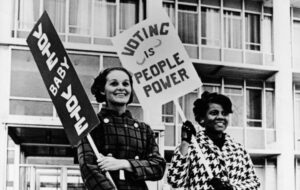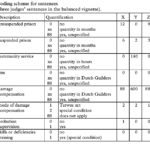Current Sufism In Israel. The Way Of Abraham – A Bridge Between Religions
Current Sufism in Israel El Tarika El Ibrahimiyyah – The Way of Abraham – A Bridge between Middle East Religions
Introduction
I wish to thank the University of Goettingen for inviting me to lecture at the Intercultural Theology program on the Current Sufism in Israel and on Sephardic Ultra-Orthodoxy in Israel.
I will begin by introducing my subject with some historical background. Then, I would like to make a reference to the specific audience sitting here right now because it is a very special audience. On the one hand, it is German; on the other, it is an international audience. So we have to consider how do we speak to such a local yet global group.
At that point, I will present the thesis of this lecture.
So, let us now discuss the issue of the Sephardic Jews. Who are they?
The reason why one knows so little about the Sephardic or Oriental Jews is also a matter of scientific concern for those of us who study Intercultural Theology. Thus, let us have a quick look at a long and serious matter such as The Stage of History.
Yes, stage as in Stage Theater, with the very writers who write the script and the very actors who play the protagonists and the very hegemonic audience who wish to see themselves on stage, or else the very far exotic other. Then we shall move forward to have an idea about the intellectual assets of the ISRAEL Sufi way and perhaps if time allows, we shall read during our workshop some of the devotional texts studied by the Israel Sufi Way, such as El-Ghazali. So hopefully you should have some taste regarding the intercultural Theology that is bridging between religions in the Middle East today, and we shall conclude with that today.
Background
In the Jewish State of Israel, Sufi activity had been almost eliminated by the disruption of the War in 1948, partly revived after the renewal of contacts between Palestinians in Israel and in the West Bank and Gaza “in the wake of 1967 Arab Israeli War” and suppressed in the Second Intifada, also known as the Oslo War and the Al- Aqsa Intifada (2000 to 2005). This Intifada raged between the 20th and the 21st century.
In this lecture I focus on Sufism in Israel as manifested by The Israeli Sufi Way. The Israeli Sufi Way is known as The Sufi Way of Abraham. In Hebrew – One of Israel’s two national languages, it sounds Derekh Avraham (אברהם דרך). In Arabic, the other national language, it sounds Al-Tariqah Ibrahimiyyah or Ibrahimiyyah-Al (א-טַּרִיקַה אל-אִבְּרַאהִימִיַּה) / الإبراهميّة الطّريقة ).
The members of the Israeli Sufi Way come from various circles: Academy, conservative and orthodox Rabbinic institutes and leadership of other Sufi brotherhoods of Israel: Qadiriyyah, Shadhiliyyah-Yashrutiyyah and Naqshbandiyyah.
Ibrahimiyyah defines itself (2014) publicly as an inter-religious movement encouraging dialogue between Jews, Christians and Muslims. This inter-religious character is a “post-Sufi” strategy as well as a spiritual response to the particular modern European challenges of the State of Israel, tackling the Israeli East-West debate.
The Sufi leadership of the 3 Muslim brotherhoods responded to the challenge of the peculiar circumstances in which they live in the Middle East, by joining the Ibrahimiyyah and establishing it as the Israeli Sufi Way of Abraham.
This Israeli Sufi brotherhood was created during the 1990s right at the end of the twentieth century. Public activity gathered momentum during the first decade of the twenty first century, with a double mission of both peace between Jews and Muslims, and spiritual search for Medieval Jewish Sufi roots. Special attention is given to 16th century Safed (in the Land of Israel) and of Egypt and North Africa and since the Sufi festival in 2010 also to Indian Jewish Sufism of perhaps 12 century.
Zoveel soorten van verdriet: poëziecitaten in rouwadvertenties
Dood ben ik pas als jij me bent vergeten
Rust nu maar uit
Weggaan is iets anders dan het huis uitsluipen
Het gebruik om iemands overlijden publiekelijk te melden door middel van een rouwannonce in een dagblad is zeker meer dan twee eeuwen oud. Puck Kooij heeft er een boek aan gewijd. De titel, Heden gij, morgen ik. Gedenken in proza en poëzie (Amsterdam, 1995) is een variant op het gezegde “Heden ik, morgen gij” (in het Latijn hodie mihi, cras tibi), afkomstig uit een apocrief bijbelboek, met de betekenis “Wat mij vandaag overkomt, kan u morgen treffen”.
Kooij stelt in haar boek, dat de eerste rouwadvertentie verscheen in de “Oprechte Haarlemse Dingsdagse Courant van den 16 Augustus, 1791”. Die luidde
’s Gravenhage den 15 Augustus. ”In den nacht van den 12 op den 13 deezer, is alhier, aan den gevolgen van eene Borstkwaal, in den ouderdom van byna 67 Jaaren, overleden, de Wel-Eerwaardige en zeer Geleerde Heer CASPARUS VAN DER HEIDE.{..}
Zyne Assche ruste in vrede, en zyn Aandenken blyve in zegen, by alle zyne binnenlandsche en buitenlandsche Vrienden en Bekenden, aan welken mits deezen, hun geleeden verlies wordt bekend gemaakt, door den aangestelden Testaments-Executeur.“
Was de toon van zulke aankondigingen, hoewel plechtig, vooral zakelijk en informatief, gaandeweg verandert die. Kooij: “Halverwege de 19 de eeuw worden advertenties gekenmerkt door een soberder woordgebruik. (..) Spectaculaire veranderingen in de rouwadvertenties in vorm en inhoud deden zich vooral voor in de jaren negentig van de 20 e eeuw. De uitlatingen en uitroepen werden steeds creatiever en vrijmoediger, zodanig dat van terughoudendheid nauwelijks meer sprake is en de ‘emotie-cultuur’ hoogtij vierde.”
Tot die veranderingen hoort sindsdien ook het in de annonce opnemen van poëzieregels die een gemoedstoestand weergeven, hetzij nog door de overledene bij leven zelf bepaald, hetzij door de nabestaanden. Rouwpoëzie is minder bekend onder de naam funeraire poëzie, wat afstamt van het Franse funéraire, een begrafenis betreffend. Het komt ook voor in het woord funerarium, rouwcentrum.
Misschien wel het meet sprekende voorbeeld van de rol die een poëziecitaat ging innemen in de rouwannonce, is een gedicht van Nel Benschop (1918-2005):
In memoriam voor een vriend
Rust nu maar uit – je hebt je strijd gestreden.
Je hebt het als een moedig man gedaan.
Wie kan begrijpen, wat je hebt geleden?
En wie kan voelen, wat je hebt doorstaan?
Rust nu maar uit – je taak is afgekomen;
vandaag heeft God de kroon op ’t werk gezet
dat je eenmaal in Zijn kracht hebt ondernomen.
De zin was af. God heeft een punt gezet.
Maar ‘t valt ons moeilijk om de zin te vatten
van ‘t zwijgen van je laatste harteklop.
Misschien alleen maar dit: de afgematten
en moeden varen als met arendsvleuglen op …
 Benschops bundels horen tot de best verkochte in ons land en de beginregel(s) van dit In memoriam horen tot de meest geciteerde. De columnist Nico Scheepmaker viel op dat dit citeren niet altijd geheel letterlijk gebeurde. Sterker nog, hij turfde de varianten en wijdde daar in 1985 een artikel aan voor het maandblad Onze Taal, onder de titel “Rust nu maar uit: 77 variaties”. (Het stuk verscheen ook in een bundeling van zijn columns, Maar mooi! Beschouwingen over poëzie. Amsterdam, 1992).
Benschops bundels horen tot de best verkochte in ons land en de beginregel(s) van dit In memoriam horen tot de meest geciteerde. De columnist Nico Scheepmaker viel op dat dit citeren niet altijd geheel letterlijk gebeurde. Sterker nog, hij turfde de varianten en wijdde daar in 1985 een artikel aan voor het maandblad Onze Taal, onder de titel “Rust nu maar uit: 77 variaties”. (Het stuk verscheen ook in een bundeling van zijn columns, Maar mooi! Beschouwingen over poëzie. Amsterdam, 1992).
Zelden werd het gedicht in zijn geheel geciteerd, meestal werd volstaan met de eerste vier regels.
Varianten daarop waren bijvoorbeeld
Rust nu maar uit in vrede
Jij hebt je strijd gestreden
Geen mens begrijpt wat jij hebt doorstaan
Vol moed heb jij het begaan
of
Rust nu maar uit,
je hebt je strijd gestreden.
Wie kan voelen wat je hebt doorstaan,
wie kan begrijpen wat je hebt geleden.
Je hebt het als een moedig man doorstaan.
Rust nu maar uit
Chomsky: Voting Is Not The End. It’s Only The Beginning
Joe Biden is the winner of the 2020 election. Yet while Trump has lost, the Democrats failed to materialize the blue wave some expected — and Trump fared extremely well despite the pandemic. In this exclusive interview, Noam Chomsky shares some of his insights about Trump’s continuing popularity and what the left needs to do in the years ahead, emphasizing that voting is never an end — only a beginning.
C.J. Polychroniou: Although Biden has won the election, the Democrats failed to materialize a blue-wave landslide, and it is clear we will continue to deal with large-scale Trumpism. Given that you were extremely skeptical of the polls from day one, what do you think contributed to the massive turnout for Trump, even as Biden saw an even more massive turnout? Or, to phrase the questions differently, why is nearly half the country continuing to support a dangerous charlatan leader with such a feverish passion?
Noam Chomsky: The very fact that someone could be considered a serious candidate after just having killed tens if not hundreds of thousands of Americans through a disastrous response to COVID-19 is an extraordinary victory for Trump — and a defeat for the country, for the world and for hopes for a decent future.
Some of Trump’s victories are very revealing. A report on NPR discussed his victory in a solid Democratic county on the Texas-Mexico border with many poor Latinos that hadn’t voted Republican for a century, since Harding. The NPR analyst attributes Biden’s loss to his famous “gaffe” in the last debate, in which he said that we have to act to save human society from destruction in the not very distant future. Not his words, of course, but that’s the meaning of his statement: that we have to make moves to transition away from fossil fuels, which are central to the regional economy. Whether that’s the reason for the radical shift, or whether it’s attributable to another of the colossal Democratic organizing failures, the fact that the outcome is attributed to the gaffe is itself indicative of the rot in the dominant culture. In the U.S., it is [considered] a serious “gaffe” to dare to hint that we have to act to avoid a cataclysm.
Poor working people in the border area are not voting for the predictable consequences of Trump’s race toward cataclysm. They may simply be skeptical about what science predicts. Sixty percent of conservative Republicans (35 percent of moderate Republicans) believe that humans are contributing “not too much/not at all” to global warming. A poll reported in Science found that only 20 percent of Republicans trust scientists “a lot…to do what is right for the country.” Why then believe the dire predictions? These, after all, are the messages pounded into their heads daily by the White House and its media echo chamber.
South Texan working people may not be ready to sacrifice their lives and communities today on the basis of claims in elite circles that they are instructed not to trust. These tendencies cannot be blamed solely on Trump’s malevolence. They trace back to the failure of the Democratic Party to bring to the public a serious program to fend off environmental catastrophe while also improving lives and work — not because such programs don’t exist; they do. But because they don’t appeal to the donor-oriented Clintonite neoliberals who run the Democratic Party.
There’s more. Trump has shown political genius in tapping the poisonous currents that run right below the surface of American society. He has skillfully nourished and amplified the currents of white supremacy, racism and xenophobia that have deep roots in American history and culture, now exacerbated by fear that “they” will take over “our” country with its shrinking white majority. And the concerns are deep. A careful study by political scientist Larry Bartels reveals that Republicans feel that “the traditional American way of life is disappearing so fast that we may have to use force to save it,” and more than 40 percent agree that “a time will come when patriotic Americans have to take the law into their own hands.”
Irreconcilable Differences: The 2020 Elections Prove Again The U.S. As Outlier
The most consequential election in modern U.S. history won’t produce a winner for at least a few more days. And then, the result may be contested in the Supreme Court, with unforeseen consequences for the future of democratic order.
However, while much of the media and the public are consumed with scenarios as to how Biden, or Trump, can reach the magic number of 270 electoral votes, there are some highly disturbing trends and facts about the 2020 election that need to be analyzed if progressives in the U.S. can hope to advance a successful strategy in the years ahead.
First, the polls were wrong again. A blue wave did not materialize in spite of the highest voter turnout in a century and the huge demographic changes taking place all across the United States.
Second, Biden failed to perform as expected in spite of the country being in the midst of a catastrophic pandemic, with a criminally negligent president in charge who has misled the public about Coronavirus from day one and has intentionally spread dangerous information about it.
Third, Trump did much better than expected in spite of being a charlatan, the sort of a leader who says and does such outrageous and highly dangerous things that it is simply unimaginable that citizens in other advanced democracies would have tolerated him in their midst, let alone support with a feverous passion as so many Americans do.
The 2020 U.S. elections have revealed as strongly as possible that the country remains highly polarized, marked by irreconcilable differences between red and blue states. In fact, the U.S. is probably more divided today between red and blue than it was during the 1860s, and much of the credit for this accomplishment is due to the brilliant skills of the con artist occupying the White House for the last four years. Trump has exploited the anxieties, frustrations, and fears of white America, with its toxic ideological notion of racial superiority, in a manner that would have made Joseph Goebbels feel like an amateur.
Racism has always been around. But it is more alive and kicking in today’s USA than any other time since the 1950s or 1960s. This is why Trump’s neo-fascist political posturing is found to be so appealing among such huge segments of 21 st century Americans. Democracy, for Trump and many of his supporters, is an unnecessary luxury if it would mean building a society where whites are the minority. In fact, in a survey cited in Larry Bartels’s research article “Ethnic antagonism erodes Republicans’ commitment to democracy”, “most Republicans…agreed that ‘”the traditional American way of life is disappearing so fast that we may have to use force to save it.”’ https://www.pnas.org/content/117/37/22752
This is why there was a record turnout in the 2020 election: this was an election about white Americans, as Umair Haque, Director of the Havas Media Lab, artfully argued a few days ago in his essay “Is White America Really Ready to Reject Trump’s Fascism?” https://eand.co/is-white-america-really-ready-to-reject-trumps-fascism-cf88d6f9b48d
To be sure, the U.S. remains an outlier among highly advanced societies on many issues, because racism is the driving ideological force. The U.S. is the only country in the advanced industrialized world without a universal health care system, but with a warfare but no welfare state. https://www.salon.com/2020/08/08/as-the-pandemic-has-made-clear-america-has-no-welfare-state–but-we-sure-have-a-warfare-state/
The U.S.is alone among western countries with its continued use of the death penalty (where racial disparities continue even though the death penalty usage has declined), it has not ratified the UN Convention on the Rights of the Child, and has ratified fewer key human rights treaties than all other countries in the G20 group. Additionally, it never ratified the Equal Rights Amendment proposed in 1972, and it ranks 75th globally in women’s representation in government. https://www.cnbc.com/2019/03/04/the-us-ranks-75th-in-womens-representation-in-government.html
Indeed, white America is very different from the rest of the advanced world, as Haque points out in “Is White America Really Ready to Reject Trump’s Fascism?, in profoundly striking ways: “Voters in Europe and Canada — white majorities there — can be relied upon to act with some modicum of decency and humanity and common sense. They back, over and over again, what the world now considers modern social contracts that make up functioning, sophisticated societies — healthcare, retirement, education, childcare, and so on, for all, not just themselves. It would be a massive, massive shock if voters anywhere else in the West began to act like America’s white majority — they are so far off the scale of conservatism, in formal terms, that it might as well not exist.”
In sum, what the 2020 elections demonstrate, regardless of who wins the election, is that Trumpism will remain the dominant ideological and political movement in the third decade of the 21 st century in the United States. With or without Trump in the White House, white America will surely remain vigilant in its attempt to “safeguard America’s traditional values” and, in that context, progressive forces will have their hands full.
In the light of this, the creation of a “Popular Front,” a coalition of all democratic forces of the sort that took place in Europe in the mid-1930s to combat the rise of fascism, should be embraced as possibly the only coherent strategy to roll back Trumpism. But in 21 st century USA, this would mean a commitment first and foremost to the norms and values of an inclusive democracy within the context of class-and environmental politics.
As such, “identity politics,” which has gone from inclusion to division and has led to political tribalism in U.S. society, needs to be reassessed in a manner where its positive attributes are incorporated into a broader political agenda. But this is a story for another time.
—
C.J. Polychroniou is a political economist/political scientist who has taught and worked in universities and research centers in Europe and the United States. His main research interests are in European economic integration, globalization, the political economy of the United States and the deconstruction of neoliberalism’s politico-economic project. He is a regular contributor to Truthout as well as a member of Truthout’s Public Intellectual Project. He has published several books and his articles have appeared in a variety of journals, magazines, newspapers and popular news websites. Many of his publications have been translated into several foreign languages, including Croatian, French, Greek, Italian, Portuguese, Spanish and Turkish. He is the author of Optimism Over Despair: Noam Chomsky On Capitalism, Empire, and Social Change, an anthology of interviews with Chomsky originally published at Truthoutand collected by Haymarket Books.
The Winner Of The 2020 Election Won’t Be Inheriting A Genuine Democracy
 Today’s election is widely regarded as the most important national election in recent U.S. history, voters remain divided and polarized over what should be essentially the future of the country. Issues over racism, immigration, guns, women’s rights, police brutality and climate change are what essentially divide Republican voters from Democrats. The former, galvanized by the extreme and divisive rhetoric of a racist and reactionary president, wish to preserve the values of “traditional America” (white supremacy and patriarchy, militarism, rugged individualism and religiosity), while Democrats worry that another four years of Donald Trump in office will spell the end of democracy.
Today’s election is widely regarded as the most important national election in recent U.S. history, voters remain divided and polarized over what should be essentially the future of the country. Issues over racism, immigration, guns, women’s rights, police brutality and climate change are what essentially divide Republican voters from Democrats. The former, galvanized by the extreme and divisive rhetoric of a racist and reactionary president, wish to preserve the values of “traditional America” (white supremacy and patriarchy, militarism, rugged individualism and religiosity), while Democrats worry that another four years of Donald Trump in office will spell the end of democracy.
Is destroying or saving U.S. democracy what the upcoming election is all about? In this interview, political scientist C.J. Polychroniou says it is high time that we did away with the political rhetoric when it comes to U.S. democracy and look at the facts: The U.S. has a highly flawed system of democratic governance and doesn’t even rank among the top 20 democracies in the Western world, and thus is in dire need of major repair. In fact, Polychroniou argues, it is far more accurate to describe the United States as an oligarchy, a regime where an economic elite and powerful organized interests are in virtual control of the policy agenda on most issues of critical importance to public interest while average people are mainly political bystanders.
Alexandra Boutri: The general consensus among a significant percentage of voters opposed to Donald Trump is that the upcoming election represents a pivotal moment in U.S. politics, for what is at stake is nothing else than the future of democracy itself. True, or an exaggeration?
C.J. Polychroniou: Trump’s presidency has been marked from the beginning by lies, strong authoritarian impulses, contempt for the media and disdain for science, big gifts for the rich and big cuts for the poor, and complete disregard for the environment. His political posturing is outright neo-fascist, and, as such, this president surely has little concern about the subtleties of democratic governance. Of course, U.S. democracy was in a crisis long before Trump came to power. In fact, one could easily make the argument that the U.S. is not a true democracy at all (it qualifies as a mere procedural democracy), and was never meant to be when you get to understand the architecture of the Constitution, who the framers were, and why they opted to ditch, in the manner of a coup, the Articles of Confederation, during the Constitutional Convention of 1787. In fact, the drafting of the Constitution itself was not a democratic process: The delegates were sent there by state legislatures with a mandate to revise the Articles of Confederation, but, instead, they worked in total secrecy in producing an entirely new legal document for the future government of the United States.
The Constitution that the framers produced, with its system of checks and balances, was as a legal document way ahead of its time, since back then, monarchy was the prevailing form of political rule throughout the world. But in addition to designing a system of governance that would prevent the rise of an absolute ruler, the framers also wanted to make sure that the masses themselves would not be in a position to determine political outcomes. Indeed, the framers were seeking a form of government that would keep the elites safe both from the caprice of absolute rulers and from the whims of the rabble. They were indeed in complete agreement with the view of John Jay, one of the so-called Founding Fathers and the first Chief Justice, when he said, “Those who own the country ought to govern it.” Hence the purpose behind the introduction of the Electoral College, which blatantly violates the very basic principle of democracy, i.e., one person, one vote; hence also the anti-democratic nature of the Senate, where states with very small populations get the same number of senators as states with huge populations.
The U.S. is also the only democracy in the world where politicians are actively involved in manipulating the boundaries of electoral districts. Political gerrymandering has a long history in the U.S., but as Common Cause National Redistricting Director Kathay Feng pointedly put it, “In a democracy, voters should choose their politicians, not the other way around.”
In addition, federal election campaigns funded entirely by private money makes a mockery of the democratic process for electing public officials, while the “winner-take-all” system, which is not in the Constitution and therefore can be changed without a constitutional amendment, can easily be regarded as undemocratic under modern election law jurisprudence, as has correctly been pointed out by former Republican governor of Massachusetts, William Weld, and law professor Sanford Levinson.
In sum, there is no other democracy in the advanced industrialized world with the “undemocratic” features of the system of democracy found in the U.S., including its two-party system which severely limits public dialogue and debate among competing political views. Little surprise, therefore, why even the conservative weekly magazine The Economist has labeled the U.S. a “flawed democracy.” As a matter of fact, U.S. democracy does not even rank among the top 20 democracies in the Western world, according to the Democracy Index compiled by the Economist Intelligence Unit. The U.S. form of governance fits far more perfectly with that of classical oligarchy, although in the last four years, the country also had a leader who behaved more in tune with the traits of the tyrannical man outlined in Plato’s Republic.
- Page 2 of 2
- previous page
- 1
- 2






